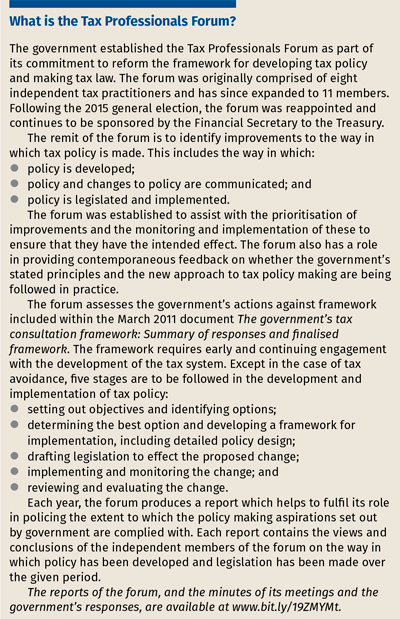In December, the Treasury published the latest report of the Tax Professionals Forum on the coalition government’s handling of the tax policy making process in the period up to the election. The report contains four key recommendations – to deliver on promises or provide explanations where not delivered; to avoid rushing through legislation in a pre-election Finance Bill; to clearly define the Office of Tax Simplification (OTS); and to integrate international reform into the UK’s consultation framework in the consultation and policy development process – as well as reporting on how the government fared against the recommendations of previous reports.
Chris Sanger (EY) considers the Forum’s key recommendations on the coalition government’s handling of the tax policy making process in the period up to the election.


In December, the Treasury published the latest report of the Tax Professionals Forum on the coalition government’s handling of the tax policy making process in the period up to the election. The report contains four key recommendations – to deliver on promises or provide explanations where not delivered; to avoid rushing through legislation in a pre-election Finance Bill; to clearly define the Office of Tax Simplification (OTS); and to integrate international reform into the UK’s consultation framework in the consultation and policy development process – as well as reporting on how the government fared against the recommendations of previous reports.
Chris Sanger (EY) considers the Forum’s key recommendations on the coalition government’s handling of the tax policy making process in the period up to the election.









